Search
Remove Ads
Advertisement
Summary 
Loading AI-generated summary based on World History Encyclopedia articles ...
Search Results
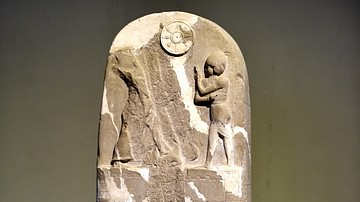
Image
Stele of Dadusha, King of Eshnunna
The stele is an elongated stone monument which originally stood at the Temple of Adad at Eshnunna. The front side is carved with four registers while the narrow sides were inscribed with 220 lines of a cuneiform text divided into 17 columns...
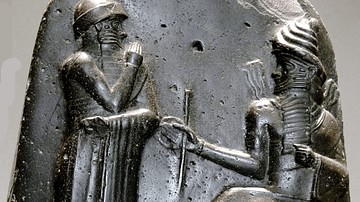
Definition
Hammurabi
Hammurabi (r. 1792-1750 BCE) was the sixth king of the Amorite First Dynasty of Babylon best known for his famous law code which served as the model for others, including the Mosaic Law of the Bible. He was the first ruler able to successfully...

Definition
Code of Hammurabi
The Code of Hammurabi was a set of 282 laws inscribed in stone by the Babylonian king Hammurabi (r. 1795-1750 BCE) who conquered and then ruled ancient Mesopotamia. Although his law code was not the first, it was the most clearly defined...
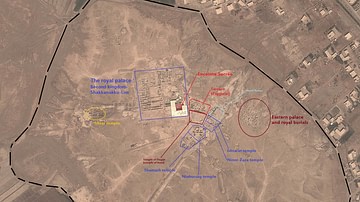
Definition
Mari
Mari was a city-state located near the west bank of the Euphrates River in Northern Mesopotamia (now eastern Syria) during the Early Bronze Age and the Middle Bronze Age. One of the earliest known planned cities, Mari is believed to have...
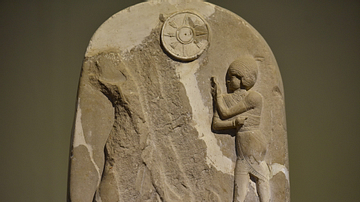
Image
Stele of Dadusha at the Iraq Museum (detail)
This detail shows the upper register of the stele of Dadusha. The stele is an elongated stone monument which originally stood at the Temple of Adad at Eshnunna. The front side is carved with four registers while the narrow sides were inscribed...
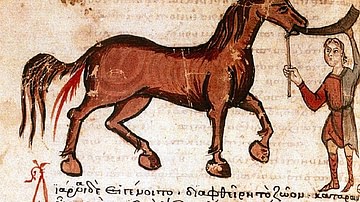
Article
A Brief History of Veterinary Medicine
The English word 'veterinarian' as defining one who provides medical care to animals, comes from the Latin verb veheri meaning “to draw” (as in "pull") and was first applied to those who cared for “any animal that works with a yoke” – cattle...
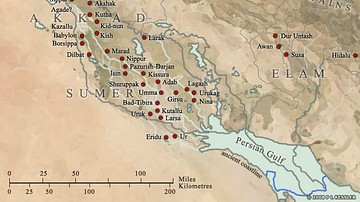
Image
Map of Sumer
The area which formed Sumer started at the Persian Gulf and reached north to the 'neck' of Mesopotamia where the two rivers, the Tigris and the Euphrates meander much closer to each other. To the east loomed the Zagros Mountains, where scattered...
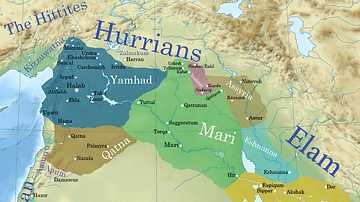
Image
Ancient Syro-Mesopotamia ca. 1764 BCE
This map shows the political situation in Syro-Mesopotamia c. 1764 BCE. During this time, the Amorite Kings, Hammurabi of Babylon and Zimri-Lim of Mari were engaged in near-constant warfare with surrounding polities, many of whom were also...
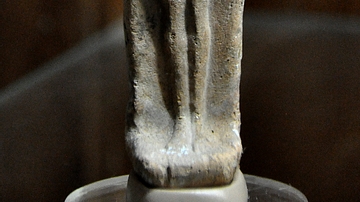
Image
Erotic Old Babylonian Plaque
This terracotta plaque depicts a naked slim woman. She wears a necklace and what appears to be a strap (in three vertical layers) above the pelvis, with one of its ends hanging down on the right thigh. The plaque might have been used for...
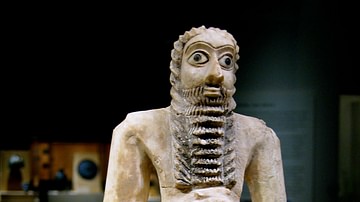
Image
Mesopotamian Male Worshiper Votive Figure
Mesopotamian male worshiper votive figure, from Eshnunna, Mesopotamia (modern-day Tell Asmar), 2750-2600 BCE.
Metropolitan Museum of Art, New York.